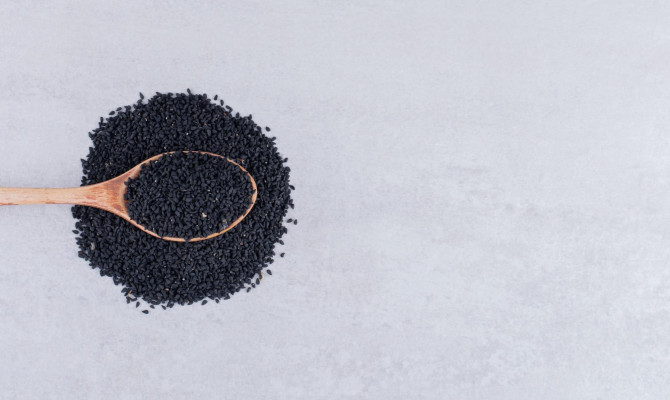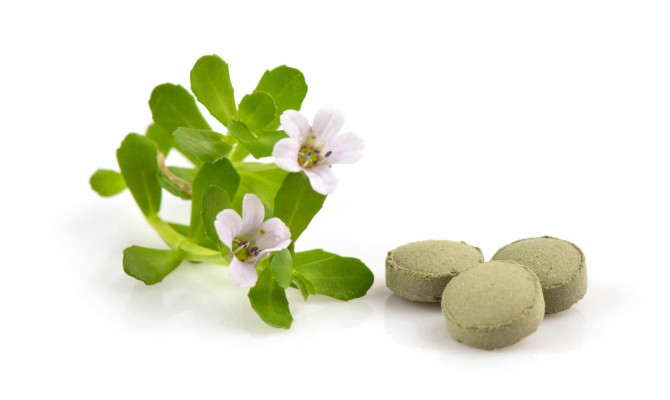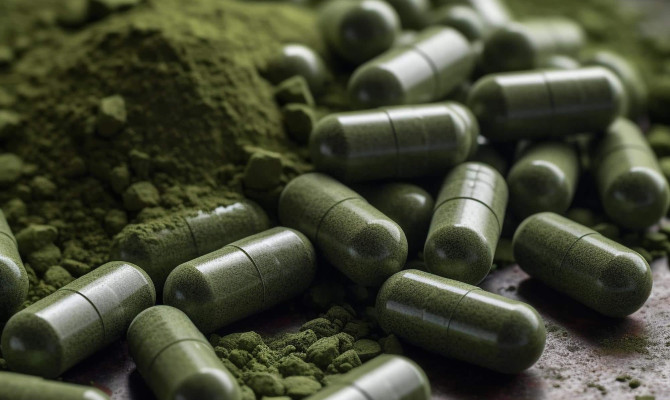Cordyceps : Nature’s Remarkable Fungi with Health Benefits

- Cordyceps
- 16 Aug 2023
Overview
About Cordyceps
The astonishing diversity of living things in nature never ceases to amaze us, and the interesting Cordyceps is only one example. Due to its unique features and exceptional health advantages, this genus of fungi has attracted scientists and herbalists for generations.
The fascinating world of cordyceps will be explored in this article, along with its life cycle and health benefits. We’ll explore its possible health advantages and explain its use in contemporary medicine.

Key facts
Key Facts of Cordyceps
- Cordyceps are called “caterpillar fungi” because of their distinct parasitic characteristics. As a necessary component of their life cycle, they infect and eat the bodies of insects, especially caterpillars.
- They can be found primarily in high-altitude areas like Tibet, the Himalayas, and other parts of Asia.
- They have long been employed in conventional Chinese and Tibetan medicine.
- A “fruiting caterpillar” is another name for the Cordyceps fruiting body, which grows from the insect’s body and has a distinct club-like appearance.
Cordyceps Sinensis
- Cordyceps is a type of fungus that has been utilized for many years in traditional Chinese medicine. It has several health advantages, including enhancing energy, enhancing athletic performance, and strengthening immune system health.
- Additionally, it can increase oxygen uptake and boost respiratory health. The particular effects and mechanisms of Cordyceps sinensis are still the subject of continuous scientific study. Thus, individual outcomes may differ.5Key facts| Researched based study from Nlm.nih.gov
Health Benefits

Health Benefits of Cordyceps
- Improves energy levels and combat fatigue
- Supports respiratory function
- Strengthens the immune system
- Beneficial in managing heart disease.
- Improves fertility and sexual health
- Regulates blood sugar levels
- Helps in cancer and tumor treatment
More people are becoming aware of the benefits of cordyceps. Some of them are listed below:
Increased energy and stamina
- They are said to increase energy and fight tiredness. It is popular among athletes and anyone looking to improve their physical performance because it is frequently utilized to increase vitality and endurance.
Respiratory fitness
- They have long been employed to help with respiratory function.
- It is thought to reduce the symptoms of illnesses, including asthma and chronic obstructive pulmonary disease (COPD), enhance oxygen intake, and open up the airways.3Health benefits| Researched based study from Nlm.nih.gov
Supports immune system
- They have a history of having possible immunomodulatory effects. It may help in regulating and strengthening the immune system, improving its capacity to fight off diseases and infections.
Management of chronic inflammation
- They contain elements with anti-inflammatory properties. The management of chronic inflammation, which is linked to several diseases like heart disease, arthritis, and various cancers, may benefit from this.
Provides better sexual health
- Cordyceps has been used as an aphrodisiac and to treat sexual dysfunction in conventional medicine. It is thought to increase libido, fertility, and men’s and women’s reproductive health.
Reduces oxidative stress
- They have potent antioxidants that support the body’s defenses against the oxidative stress of free radicals.3Health benefits| Researched based study from Nlm.nih.gov
- It may help in regulating and strengthening the immune system, improving its capacity to fight off diseases and infections.
Maintains the Health of Kidney and liver
- They have long been employed to support the health of the liver and kidneys. It is thought to preserve these essential organs and speed up detoxification.3Health benefits| Researched based study from Nlm.nih.gov
Aids in blood sugar management
- According to the research, it may have hypoglycemic qualities, which could help control blood sugar levels.1Health benefits| Researched based study from Hindawi.com
Provides adaptogenic effects
- It might increase resilience, balance, and the body’s ability to deal with stress.3Health benefits| Researched based study from Nlm.nih.gov
Cordyceps and cancer
- It has been a topic of attention in cancer research. While some studies have suggested possible advantages, the data is inadequate, and further studies are required to confirm its efficacy as a cancer treatment.
Antitumor properties
- Several research conducted on animals and in the laboratory have suggested that the extracts may suppress the development of tumors, promote cell death, and modify immunological function.7Health benefits| Researched based study from Nlm.nih.gov
Side effects
Side effects of Cordyceps
Although cordyceps is generally considered safe, some people may have mild side effects such as
- Diarrhea
- Dry mouth
- Nausea
- Gastrointestinal pain.4Side effects| Researched based study from Nlm.nih.gov
Nutritional value
Nutritional values of Cordyceps
Proteins
- They have a significant amount of protein necessary for repairing and building tissues.
- It offers a variety of essential and non-essential amino acids required for the body’s numerous biological functions.
Polysaccharides
- Polysaccharides, complex carbohydrates with possible immune-modulating characteristics, are abundant in them.
Vitamins
- Contain various vitamins, including vitamins K, E, and B (B1, B2, and B12).
- Minerals Potassium, magnesium, calcium, iron, and zinc can all be found in them.6Nutritional value| Researched based study from Nlm.nih.gov
Adenosine
- They include adenosine, a substance with possible cardiovascular advantages and several other health advantages.
- It’s important to remember that the nutritional content of cordyceps might change based on how it’s consumed (such as dried, powdered, or extracted) and the particular product.6Nutritional value| Researched based study from Nlm.nih.gov
Dosage
Dosage of Cordyceps
Various elements, including the particular substance, shape (powder, extract, pill), concentration, and individual needs, can affect the correct dosage. It’s important to follow the dose guidelines the manufacturer has provided on the product label.
Powdered Cordyceps
- The usual daily dosage range is between 1 and 3 grams. This can either be taken in multiple doses or all at once.
Extract of Cordyceps
- A smaller dosage is frequently advised since the extract is more potent than the powdered form. The typical range is between 500 mg and 1 gram per day.
It’s vital to remember that these ranges are only broad recommendations and may change depending on your demands. Always start with the lowest effective dose and gradually raise it as needed while keeping an eye on how your body reacts.6Dosage| Researched based study from Nlm.nih.gov
Storage
How to store Cordyceps?
- Keep away from heat, dampness, and bright sunlight in a cold, dry environment. Over time, heat and moisture exposure might reduce a product’s quality.
- It should be kept in an airtight container, either a glass jar or a zippered bag, to guard against exposure to humidity and air.
- Instead of cooling it, keep it at room temperature.
- It’s better to keep it separate from spices, herbs, and other goods with overpowering scents because it can absorb strong odors.
Precautions
Precautions
Source and quality
- To ensure the product’s quality and purity, buy cordyceps from reliable vendors who adhere to excellent manufacturing practices.
Allergies
- If you are aware of any fungal or mushroom allergies, it is best to use caution or seek medical advice.
Medical issues
- You should speak with a healthcare provider before ingesting if you have any underlying medical concerns, such as autoimmune disorders, blood disorders, or scheduled procedures.
Pregnancy and breastfeeding
- There needs to be more research available. Unless specifically instructed otherwise by a doctor, it is better to stay on the side of caution and refrain from using it during these times.3Precautions| Researched based study from Nlm.nih.gov
Interactions
Medication interaction
Anticoagulants
- They might have anticoagulant characteristics, making bleeding more likely or interacting with other blood thinners like aspirin or warfarin.2Interactions| Researched based study from Biomedcentral.com
Medicines for diabetes
- Combined with diabetes medications like insulin or oral hypoglycemic agents, they may lower blood sugar levels, leading to low blood sugar.1Interactions| Researched based study from Hindawi.com
Any feedback on this article?
 This Articles content was accurate
This Articles content was accurate Very Informative Article
Very Informative Article I have a question or a comment
I have a question or a comment
 This article contains inaccurate content
This article contains inaccurate content This article was not helpful
This article was not helpful I have a question or a comment
I have a question or a comment
We appreciate your helpful feedback!
Checkout our social pages
References
-
Hindawi Hub
Studies on the Antidiabetic Activities of Cordyceps militaris Extract in Diet-Streptozotocin-Induced Diabetic Sprague-Dawley Rats | Interactions | Health benefits
-
BioMed Central
Antiplatelet and antithrombotic effects of cordycepin-enriched WIB-801CE from Cordyceps militaris ex vivo, in vivo, and in vitro | Interactions
-
National Library of Medicine
Cordyceps as an Herbal Drug | Health Benefits
-
National Library of Medicine
Bioactive Metabolites and Potential Mycotoxins Produced by Cordyceps Fungi: A Review of Safety | Side effects
-
National Library of Medicine
Properties of Cordyceps Sinensis: A review |
-
National Library of Medicine
Pharmacological and therapeutic potential of Cordyceps with special reference to Cordycepin | Nutrition | Dosage
-
National Library of Medicine
The Anticancer Properties of Cordycepin and Their Underlying Mechanisms | Health benefits





































